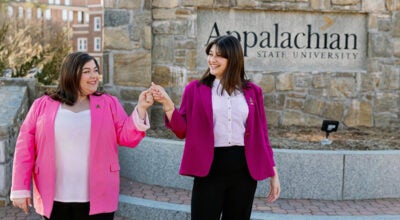Rezoning decision delayed
Published 5:28 pm Tuesday, November 17, 2020
|
Getting your Trinity Audio player ready...
|
JACKSON – A public hearing on a rezoning proposal brought up questions about procedure, and the decision was ultimately delayed until December.
The Northampton County Board of Commissioners held the public hearing here before their regular meeting on Monday, Nov. 16. The county’s Planning and Zoning Director, William Flynn, presented the information on the 10 parcels of land in question for rezoning.
“We’re looking at a request to rezone eight parcels on one side of Cherry Tree Road and two on the other side,” Flynn explained, noting that the land is located off of Highway 46 just a few miles west of Gaston.
The parcels altogether cover approximately 611 acres. They’re currently zoned as Agricultural Residential Watershed (AR-2), and the proposal sought to change that designation to Agricultural Residential (AR).
“There’s not a lot of difference between the two,” Flynn continued, explaining that the permitted uses between AR and AR-2 are almost the same. “AR is a little less restrictive that AR-2.”
Flynn also explained other things to take into consideration, such as the size of the parcels, the permitted uses, and the potential for benefit to the community. He reported that both the county’s Code Enforcement Department and the Planning Board gave the proposal a favorable recommendation based on those considerations.
“It does not appear to be illegal spot zoning. It seems like a good switch over without causing disruption,” he concluded.
The land, if approved for rezoning, would be the site for a solar facility operated by SunEnergy1. Solar facilities are listed as a permitted use on AR parcels but not under AR-2.
SunEnergy1 has constructed numerous solar facilities in eastern North Carolina, including some in Hertford, Bertie, and Gates counties. According to their website, this would be their first solar facility in Northampton County.
After Flynn’s presentation, Board Chair Charles Tyner had some questions about the notification of the neighboring property owners and the procedure for them to submit their public comments.
“Personally, I’m not opposed to any changes as long as the citizens in that community say fine,” Tyner stated.
Flynn replied their office notifies all the adjoining property owners by certified mail—he estimated that was over 40 people for this particular proposal—and they all have the opportunity to speak at the public hearing with the Board of Commissioners. Tyner suggested that, in the future, the Planning Board should also hold a public hearing prior to sending the proposal to the commissioners so that neighbors can ask questions ahead of time.
Tyner’s point showed some merit when three concerned neighbors opted to speak during the public comment portion of the hearing. All had questions about the purpose and the effects the solar facility would have on the surrounding area.
“I feel like we’ve been excluded,” said James Prince, who lives on one of the adjoining properties.
Prince and the others who spoke in public comment asked if the solar facility would affect their property value, if it would have any long-term health effects on themselves and their families, and if it would have a negative effect on the soil.
Linda Nwadike, a representative from SunEnergy1, attended the hearing via Zoom and provided some answers to their questions. She stated the solar facility would not affect the taxation of other neighboring properties and there would be no health effects either. As for the soil, she said the galvanized steel used in construction would only effect growing peanuts and not any other kind of crop that may be grown on the land after the facility is decommissioned.
When the discussion wrapped up, Flynn agreed they would do things differently going forward. Though neighboring property owners can always contact the Code Enforcement Office for questions about rezoning proposals and such, he said they would also follow Tyner’s suggestion to hold public hearings with the Planning Board.
“Things in Northampton County will be changing,” Tyner said. “You have a right to make a decision of what you want to do with your property as long as it doesn’t invade on another person’s property or another person’s health.”
Commissioner Kelvin Edwards motioned to table the rezoning decision until the commissioners’ next meeting at 5 p.m. on Dec. 7. Commissioner Joyce Buffaloe seconded, and the vote passed unanimously.
Requests for maps or questions about rezoning can be sent to william.flynn@nhcnc.net


